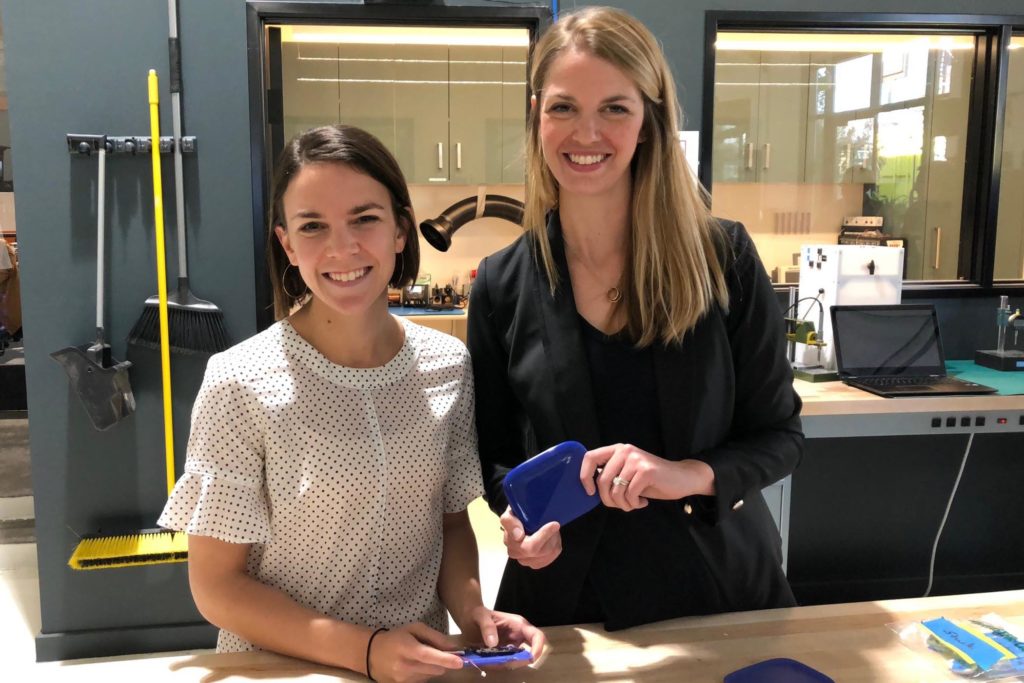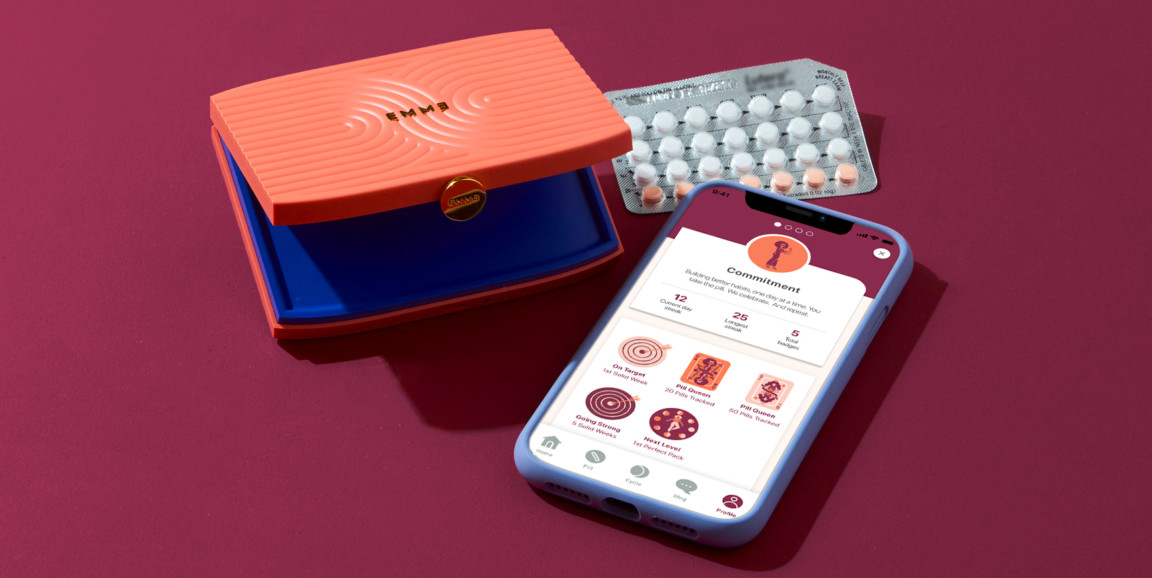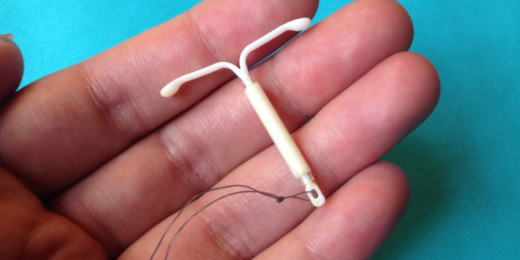Every year, roughly 1 million women in the United States experience an unplanned pregnancy despite taking birth control pills. The surprise is often caused by late or missed doses, which reduce the pill's effectiveness from 99% to only 91%.
To close that gap, a team of fellows from the Stanford Byers Center of Biodesign invented a smart birth control system that's been named among Time magazine's 100 best inventions of 2021.
Developed by Stanford Medicine neonatologist Janene Fuerch, MD, and her teammate Amanda French, a mechanical engineer, the system, called Emme, combines a Bluetooth-connected smart pill case and an app that tracks when a woman takes her contraceptive.

Sensors detect when the case is opened and when the pill pack is removed, indicating that the user has taken her pill. The case syncs with the app, which sends reminders until the dose is taken. The app is also connected to telemedicine providers and prescription delivery services.
In a pilot test of approximately 80 women, the combination reduced the incidents of missed pills by 80%.
"Other birth control apps send a single reminder message that can be easily snoozed or ignored," said Fuerch. "Other apps also rely on the user to enter data, like when they take a pill, which is easily missed, especially when people are busy. Our system sends that information to the app automatically."
The result is an accurate, personal health record that the app uses to provide individualized contraceptive guidance. For example, if user misses one or more pills, an algorithm accounts for the type of pill being taken (some contain a form of the female hormone progesterone, while others contain both progesterone and estrogen) and the actual times pills were taken, then recommends steps to prevent pregnancy, such as doubling up on pills or using a back-up contraception method. The app also helps women track their menstrual cycle and mood.
The smart case
It's not just the app that the team has tailored to make a difference. "The case not only protects the pills but it was also designed as an elegant accessory," said Fuerch. The sleek case, she said, is meant to be seen as a deliberate effort to eliminate any stigmas around taking birth control pills.
Fuerch credits Emme's success to the biodesign innovation process taught in the fellowship. This step-by-step approach to inventing a new health technology starts with deeply understanding a patient problem. "We interviewed and surveyed thousands of women to understand their experience with birth control pills before developing our solution," she said.
While the team is focused on helping women manage their reproductive needs, they have heard anecdotally that some women are using the system to help them remember to take other medications. Recognizing this utility, the team is exploring using the platform to improve prescription adherence for other health needs.
"Our focus is putting women's health in women's hands," said Fuerch. "Improving the birth control pill experience is just the first step."
Photo courtesy of Emme
The Emme case, pictured above, is designed to pair with an app take the stigma out of birth control.






